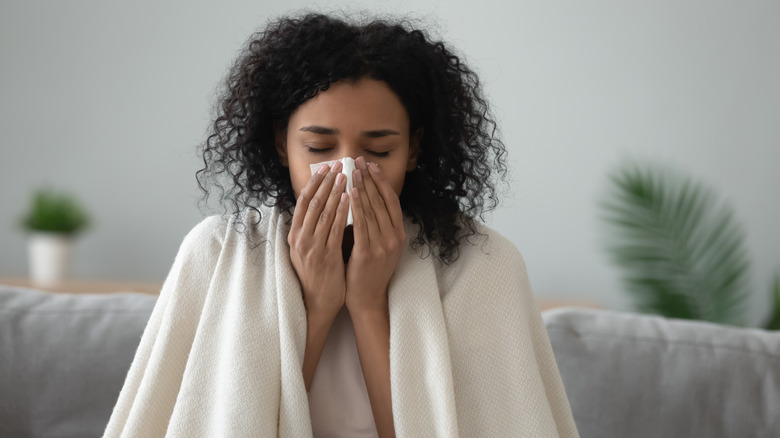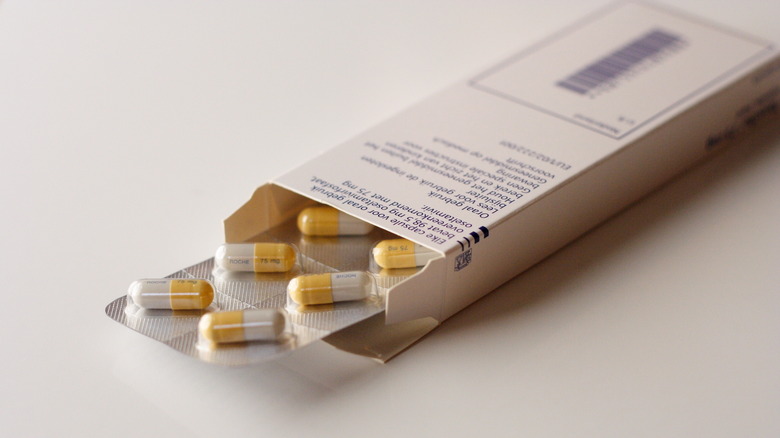The First Thing You Should Do If You Think You Have The Flu
The flu is a respiratory infection caused by a virus that attacks the lungs, nose, and throat. While the severity of the virus can vary from person to person, the flu can often feel like a bad or minor cold (via Healthline). Unlike the common cold, however, flu symptoms can come on quite suddenly and tend to be more severe than the usual sneezing and sniffling of the average cold.
Some early signs and symptoms of the flu include sudden fever, chills, fatigue, cough, sore throat, runny nose, and muscle aches. If you have any combination of these symptoms and think you might have the flu, the first thing you should do is stay home and rest (via WebMD). The flu is highly contagious and can even be deadly, so you don't want to risk infecting others by going to work or school. Your body also needs time to rest as it tries to fight off the virus. That's why it's a good idea to use the opportunity to take frequent naps and sleep as much as possible.
How to treat the flu
In addition to staying home and resting, it's also important to stay hydrated and drink plenty of water and fluids, to avoid dehydration (via Verywell Health). "When you have a fever, when you have an infection, you breathe out more water and you go through water faster, so it's easier to become dehydrated," Vanessa Raabe, an assistant professor of medicine and pediatrics at NYU Langone's Vaccine Center, told The Cut.
You can also help ease your symptoms by taking over-the-counter pain relievers and allergy medications. Taking medications like ibuprofen and acetaminophen can help treat muscle and body aches and reduce a fever, while antihistamines and decongestants can be used to help relieve congestion, sneezing, or your runny nose.
While most healthy children and adults will not need to take any prescription medications, some people may need to talk to their doctors about taking antiviral medications to stop the spread of the flu. Antiviral drugs like Tamiflu, Xofluza, Relenza, and Rapivab can help shorten the duration of the virus, alleviate symptoms, and prevent complications from occurring.


